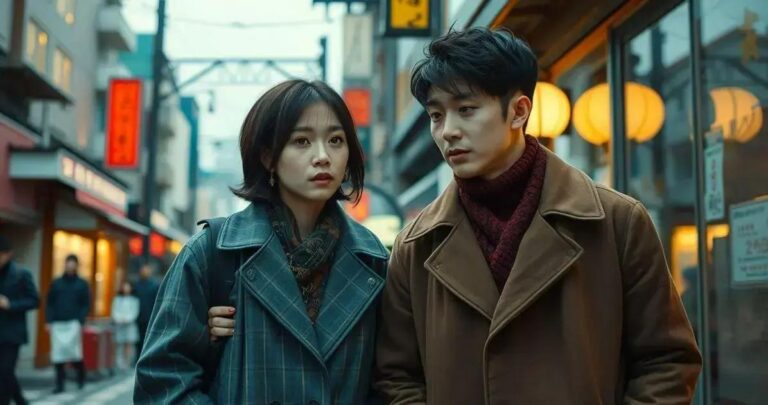How To Watch: The Beggar King Returns
Advertisements
The Beggar King Returns
In a world where pride, betrayal, and redemption collide, The Beggar King Returns opens with a striking premise: a man once seated among the elite is betrayed, stripped of everything, and left to survive on the streets. Yet in the gutters of society, he discovers not only resilience but a truth greater than the wealth he lost. This is not merely a fall from grace — it is the rebirth of a man who learns that power without purpose is nothing.
The series weaves gritty realism with moral depth. Each episode reveals a new layer of the protagonist’s transformation — from arrogance to empathy, from silence to strength. As he rises once again, not by money but by integrity, The Beggar King Returns becomes a parable about what it truly means to lead — and what it means to be human.
The Fall from Power
Once a respected businessman and family man, the protagonist, known only as Ethan Cross, builds an empire on ambition and influence. His world crumbles overnight when his closest associates frame him for corruption. Bank accounts freeze, friends vanish, and the man who once ruled a corporate kingdom becomes a nameless wanderer. The show’s opening scenes capture this collapse with brutal honesty — the quiet panic of losing identity, the humiliation of asking for help, and the haunting silence of those who once applauded him.
But the fall is not just financial; it’s existential. Ethan is forced to confront his complicity in the system that abandoned him. He had once ignored the poor, convinced that their suffering was self-inflicted. Now, as one of them, he must unlearn the arrogance that blinded him. His descent into homelessness is both punishment and purification, setting the stage for his transformation from fallen king to a leader of the forgotten.
The Kingdom of Shadows
As Ethan learns to survive, he discovers an entire society hidden beneath the city’s surface — the “Beggar Kingdom.” This world has its own rulers, codes, and loyalties. The series portrays it not as a place of despair but as a mirror of the world above, where greed, compassion, and leadership still matter. Here, Ethan earns his new title: “The Beggar King,” a name given not for pity, but respect.
He befriends Mira, a mute young woman whose silence speaks volumes. Through her, he learns that dignity exists even in the depths of ruin. Their bond becomes one of mutual survival and quiet understanding. Together, they navigate danger, corruption, and the unspoken politics of life on the margins. The show’s realism—filmed in real city locations with natural lighting—immerses the viewer in the raw, beating heart of human struggle.
Rebellion and Revelation
In its middle episodes, the story takes a bold turn from survival to justice. Ethan begins uncovering the network of corruption that led to his downfall — a web that extends from city officials to the very company he once owned. Armed with knowledge and new allies from the streets, he begins to strike back. Not with violence, but with exposure. The beggars, once dismissed as invisible, become his eyes and ears, turning society’s lowest into its most powerful truth-tellers.
Here, The Beggar King Returns explores its central theme: redemption through purpose. Ethan’s goal shifts from revenge to reform. His leadership inspires the homeless to demand recognition and justice. The scenes depicting the “Beggar Revolution” are some of the most gripping of the series — chants echo through tunnels, newspapers ignite public outrage, and the once-broken man stands again, not to reclaim his throne, but to build a new one.
The Meaning of Return
The “return” in the title is both literal and symbolic. Ethan reenters the world that rejected him — but as a different man. When he finally faces his former partners in a public inquiry, he refuses vengeance. Instead, he exposes their crimes with calm dignity. The show’s climax is not about triumph but truth. He wins not by reclaiming wealth, but by revealing the moral bankruptcy of those still enslaved by greed.
His speech in the finale — quiet, deliberate, and sincere — encapsulates the series’ soul: “I once thought power was the right to command. Now I know it is the courage to stand among the powerless.” The audience sees that his return is not to the top, but to himself.
Cinematography and Sound
Visually, The Beggar King Returns uses stark contrast to mirror its themes. Cold, desaturated tones dominate the early episodes, representing isolation and shame. As Ethan grows, the color palette warms subtly — sunlight through alleyways, candlelight in makeshift shelters, the human glow of community. The cinematography draws inspiration from European neo-noir and Asian street realism, blending grit with poetry.
Sound design plays a crucial role. The early silence of the city—cars without honks, streets without chatter—reflects Ethan’s internal emptiness. Later, when he begins to lead, ambient sounds return: voices, footsteps, laughter. The final episode’s background score swells not with orchestral grandeur but with the rhythmic pulse of drums, echoing a heartbeat — the beat of rebirth.
Themes that Resonate
- Redemption Beyond Wealth. The series dismantles the illusion that status equals worth. Ethan’s rebirth proves that integrity outlives fortune.
- Voice and Silence. Through Mira, the mute ally, silence becomes a symbol of strength. Words are replaced by empathy and action.
- Society’s Mirror. The beggars’ underground world reflects the corruption and hypocrisy of the elite — suggesting that morality isn’t bound to class.
- Leadership Reimagined. Ethan’s journey redefines leadership as service, not dominance.
- Identity and Humanity. Stripped of titles and possessions, the protagonist finds his truest self in humility and connection.
Why Audiences Connect
Viewers are drawn to The Beggar King Returns not because it glamorizes suffering, but because it humanizes survival. Ethan’s journey speaks to anyone who has faced loss, betrayal, or reinvention. His story dismantles the myth of failure — showing that collapse can be the first step toward awakening. Each episode ends not with a cliffhanger, but with reflection — a pause that invites the viewer to consider their own values.
The series also resonates for its realism. It avoids melodrama, instead relying on emotional authenticity. Small moments — a shared meal, a repaired shoe, a whispered apology — carry the emotional weight of entire speeches. It’s this restraint that gives the show its quiet power.
The Legacy of the Beggar King
By the time the credits roll, Ethan Cross is no longer the man he was. The final scene — him walking away from both the skyscraper skyline and the shantytown — suggests balance. He belongs to neither world, yet understands both. His kingdom is not of walls or gold, but of hearts he’s touched. The beggars he once led continue his work, turning despair into dignity. His return, therefore, is not just personal — it’s generational.
The Beggar King Returns leaves its audience with a haunting question: when everything is taken, what remains of you? For Ethan, the answer is clear — only what you’ve given away.






